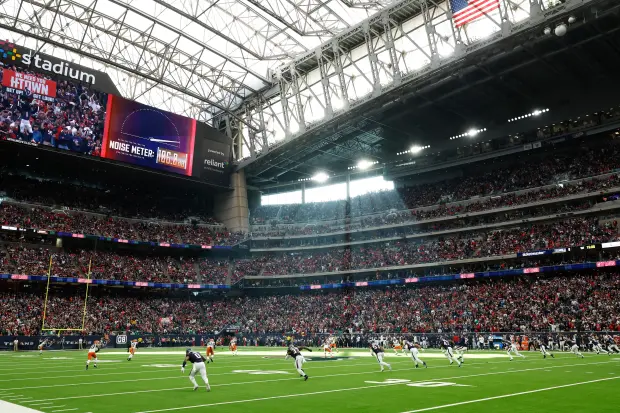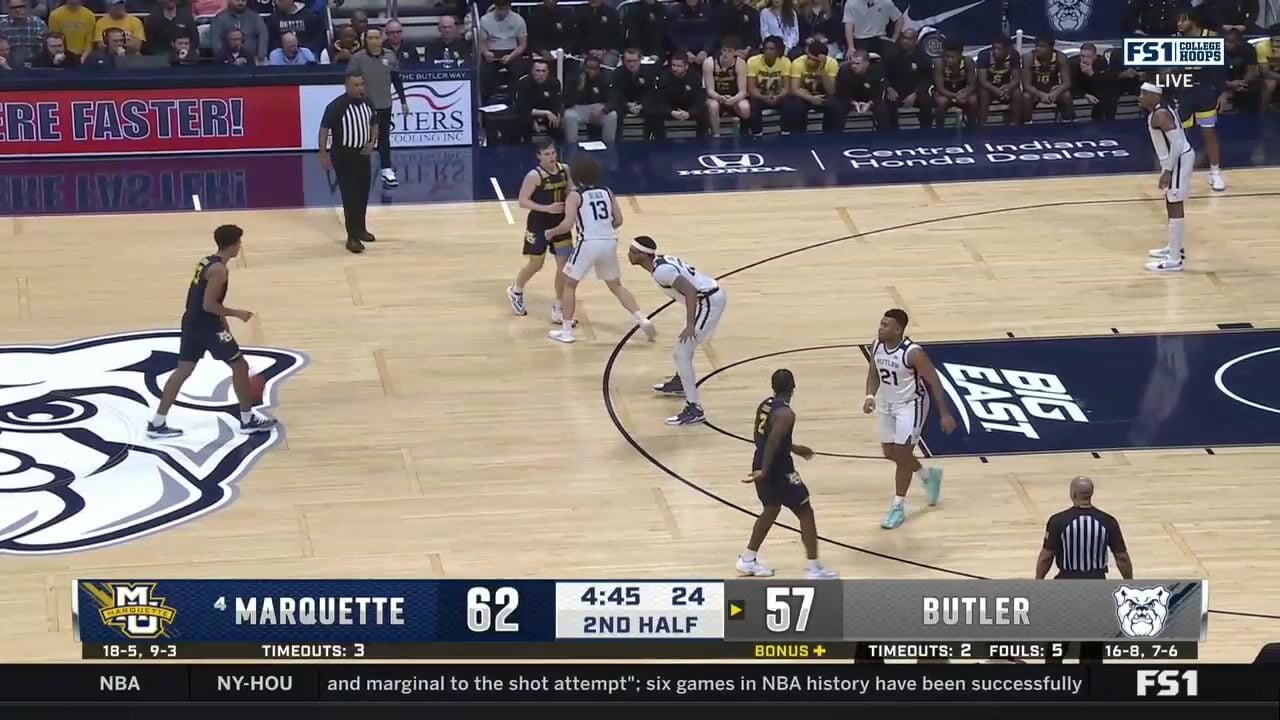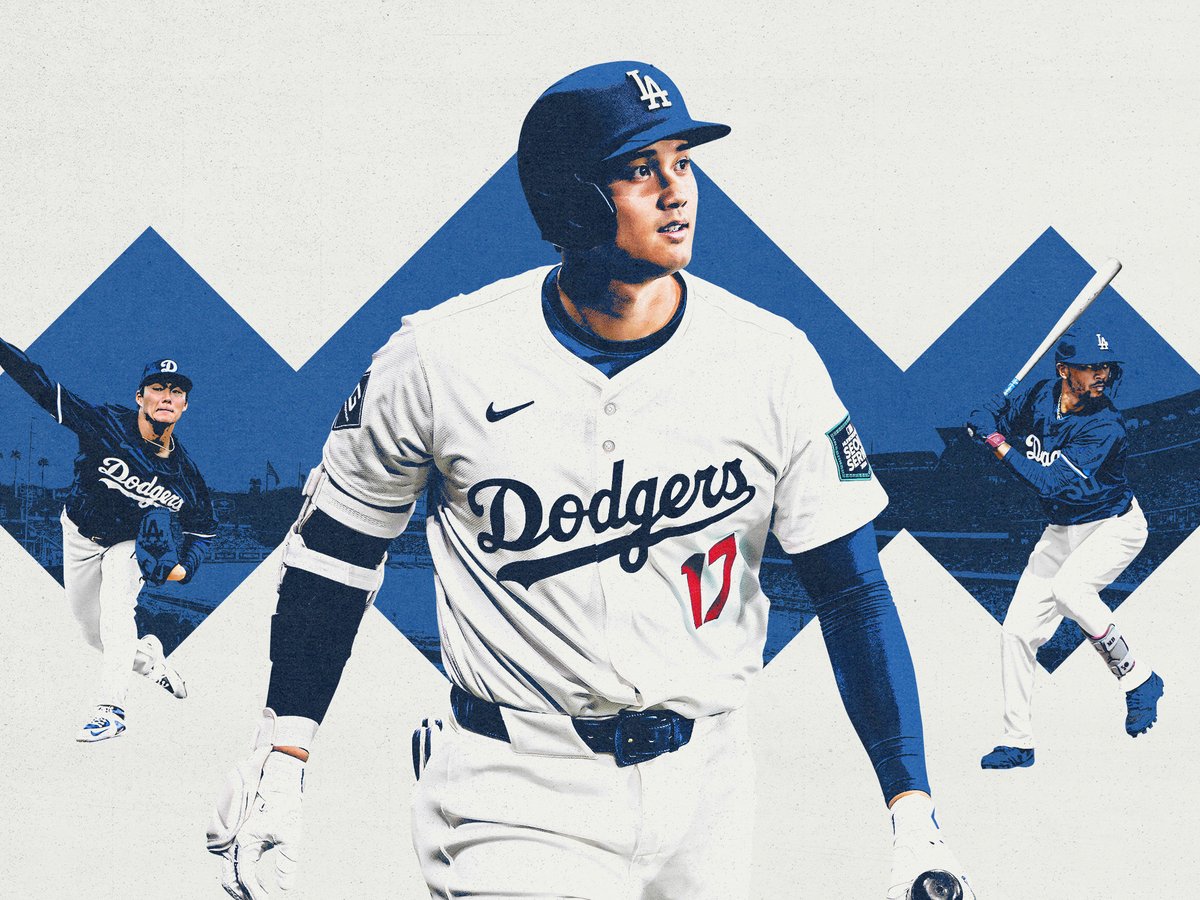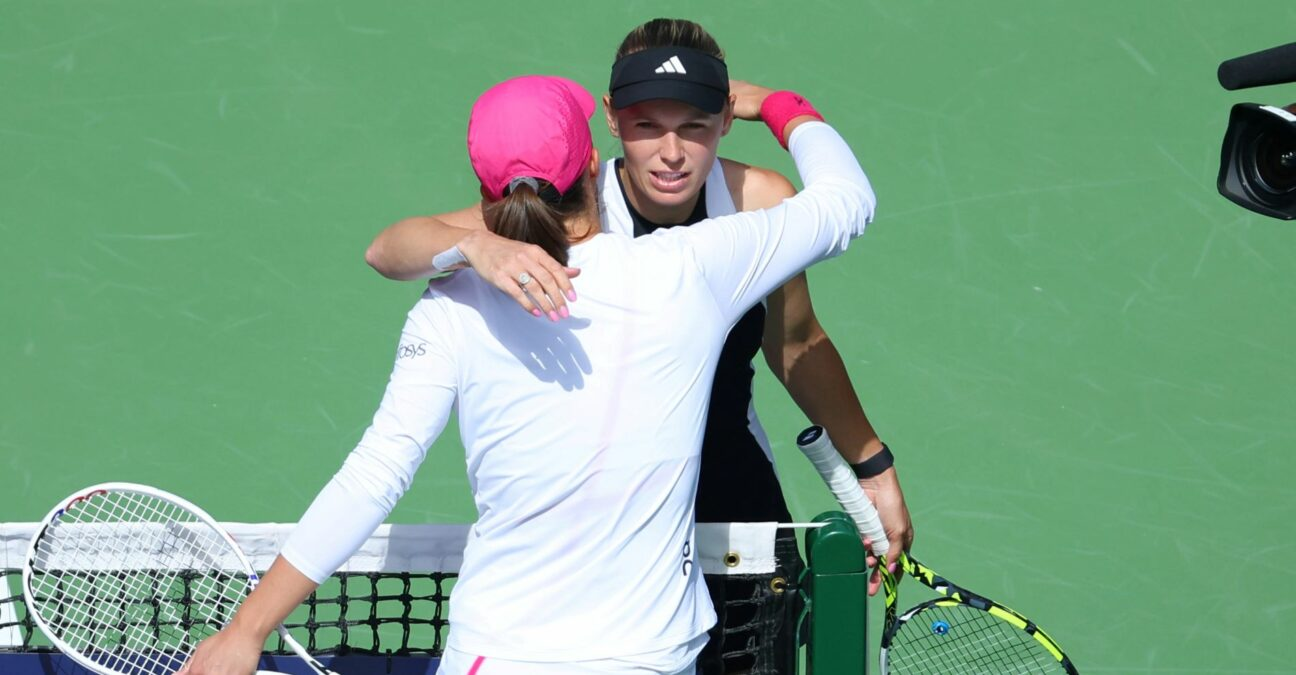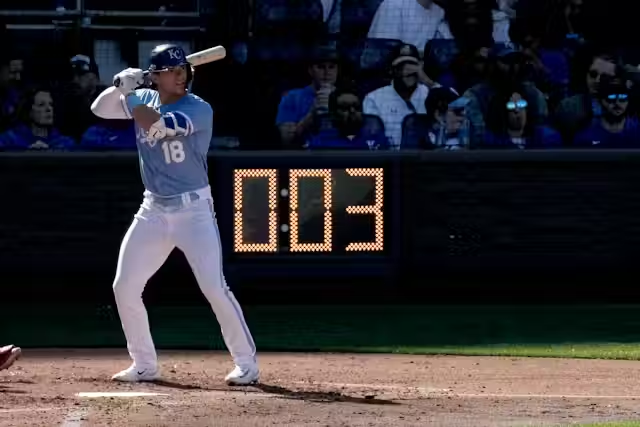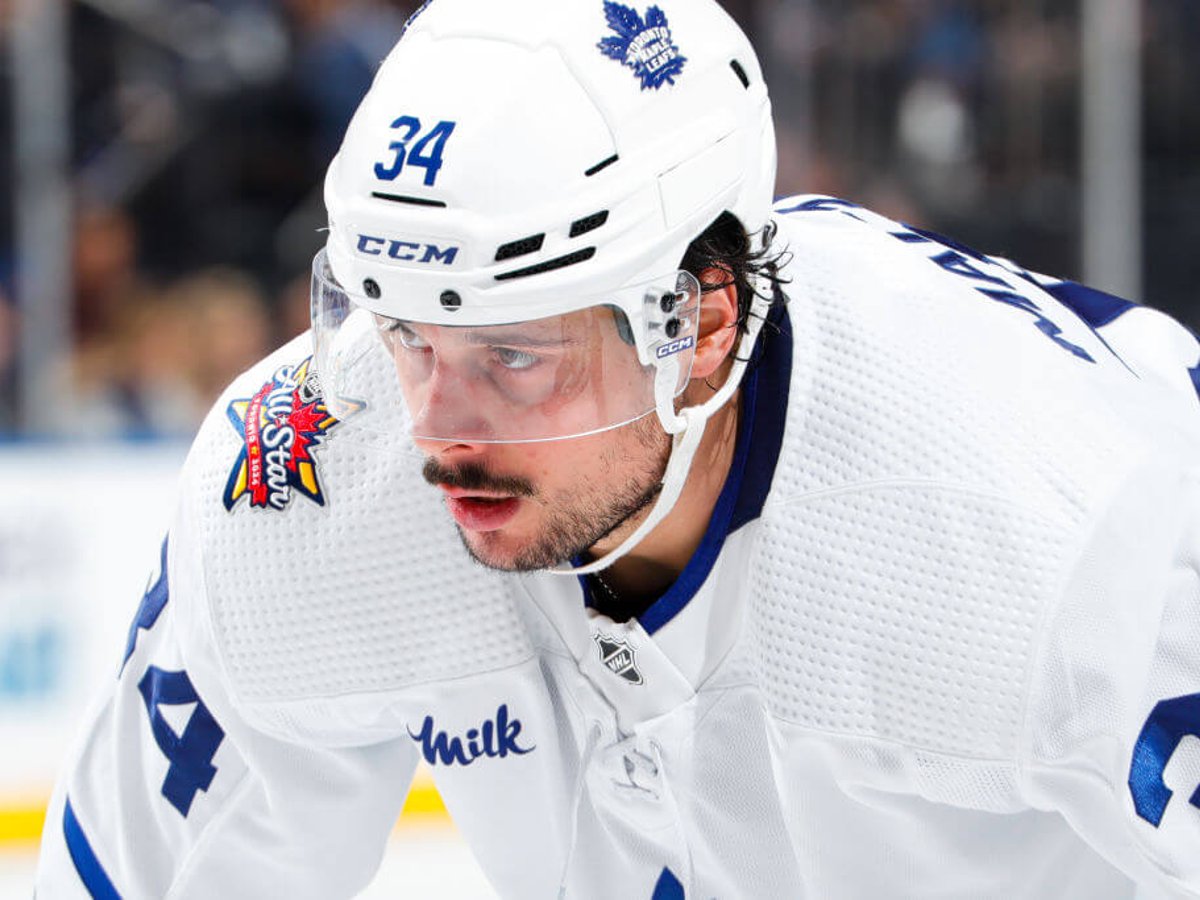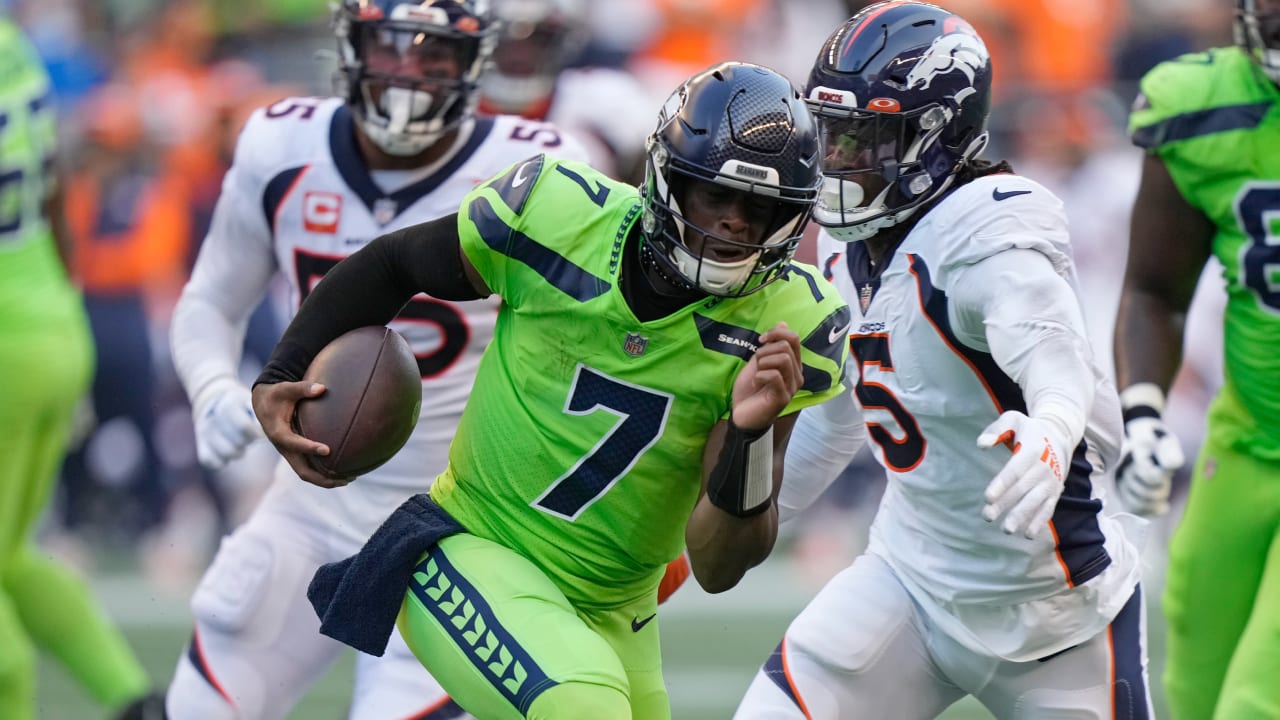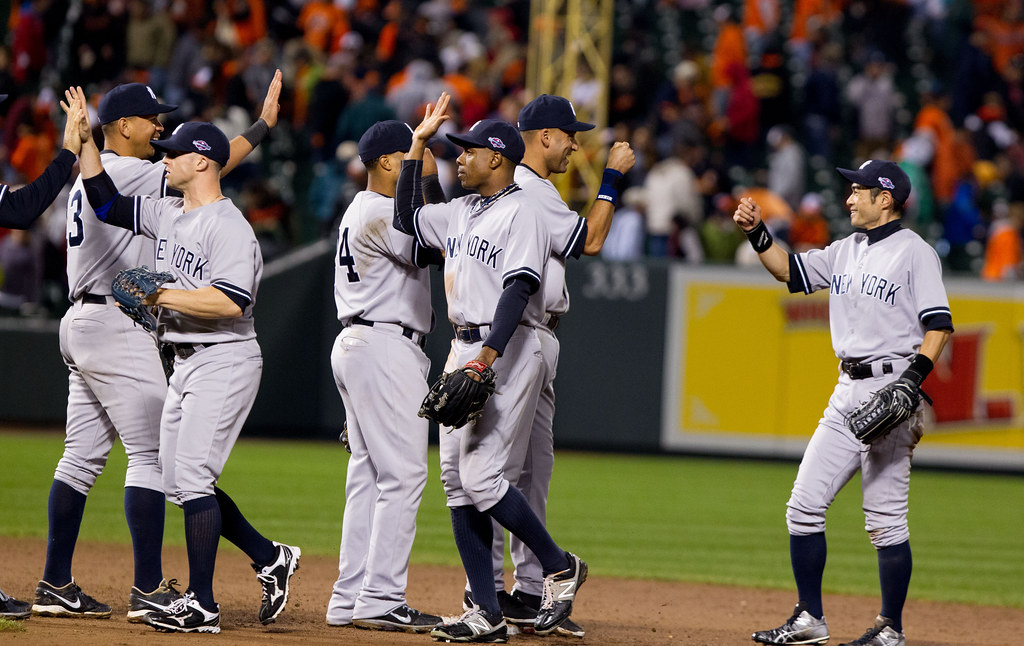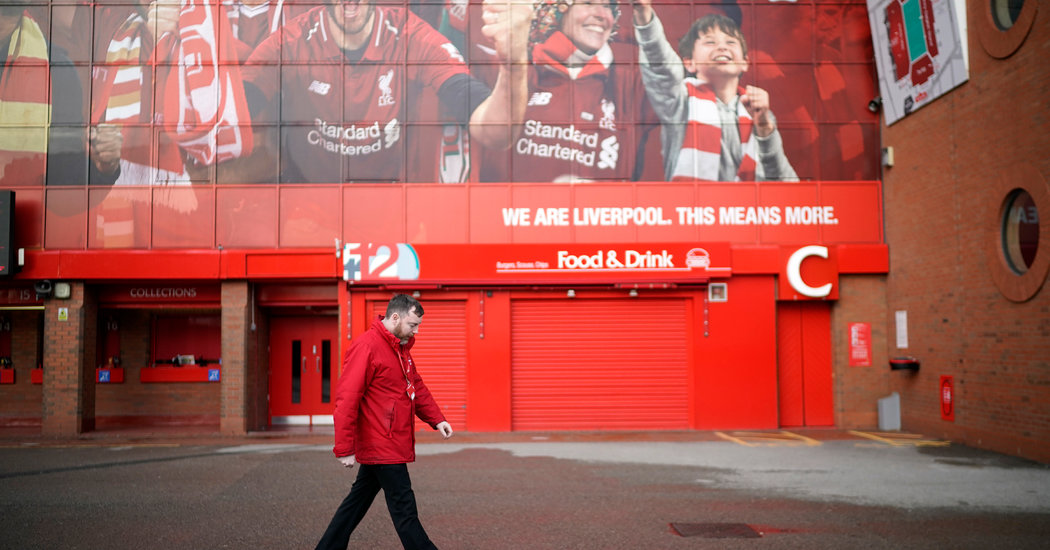
The 48 Hours When Liverpool’s Title Run Screeched to a Halt
LIVERPOOL, England — For once, there was no big finale to Jürgen Klopp’s speech. Liverpool’s coach stood in the canteen at Melwood, the club’s training facility, with his players and the club’s staff gathered in front of him. All boundaries had blurred. Star players sat next to interns, all wondering the same thing:
What now?
Klopp did not, as he ordinarily would, end his talk with a rhetorical flourish, or a war cry, or even a joke. Instead, as he sent everyone home for the foreseeable future, he stressed two simple messages.
One: it was vitally important that everyone present — not just his players, but the club’s staff members, too — stayed in touch. If they were feeling down, they were to reach out to a friend, or to one of the countless WhatsApp groups that are the lifeblood of any soccer club, or even to him. “You all have my number,” he reminded them. Feel free to use it.
And two: If anyone started to feel unwell, if anyone had even the slightest concern that they might have contracted the novel coronavirus, they were to report in to the club’s doctors — Jim Moxon and Sarah Lindsay — immediately.
Nobody, Klopp said, should be embarrassed if they had to make such a call. Nobody should feel that they needed to hide their symptoms for fear that it would delay their teammates’ return to work, or the resumption of the season, or even that it would prevent Liverpool’s finally ending its long wait for a Premier League title. “The first player to get it,” Klopp told the room, “is not the idiot.”
The fate of soccer, of course, is of fractional importance in the face of a global pandemic. And the dreams and aspirations of one team — particularly a member of the game’s wealthy elite — are just a minuscule fraction of that, particularly at a time when clubs across the world face a future so uncertain that, soon, some may cease to exist at all.
Latest Updates: Coronavirus Impact on Life in the U.S.
Liverpool, though, is in a particular purgatory. The club won the last of its 18 domestic championships in 1990. Since then, it has, at times, dipped into mediocrity and become a monument of faded grandeur. It has twice, as the song goes, conquered all of Europe. It has picked up cups and picked up scars.
This season was going to be, at long last, the season it finally won the Premier League. Until late February, Liverpool had won all of its league games but one, and even that was a draw. Less than two weeks ago, by beating Bournemouth at Anfield, it had extended its lead to 25 points.
When Manchester City lost the next day, Liverpool needed only six points — two wins — for its lead to be unassailable. It hoped to be able to claim the title on home turf, against Crystal Palace, this Saturday. Plans for parties, for parades, were already in place.
By March 11, though, people inside the club had started to sense the situation was changing. As Klopp’s players passed the time in the Hope Street Hotel preparing for a Champions League game against Atlético Madrid, others at the club were putting plans in place to deal with the mounting coronavirus crisis.
This is the story of the 48 hours when one team’s championship season ground to a halt.
Together with Phil Jacobsen, head of the club’s medical department, and its operational staff, Michael Edwards, Liverpool’s sporting director, was trying to pare down the number of staff members needed at Melwood as much as possible. The club eventually decided it could allow roughly half its nonplaying work force to stay home.
The emphasis, at that point, was very much on allowing the team to keep functioning; all the guidance that Liverpool had been given by the soccer authorities centered on the weekend’s Premier League games being played. The atmosphere was serious, tense. When Klopp walked out at Anfield that night, he was greeted by the usual throng of fans asking for high-fives. He snapped at them to “put your hands away.”
The next day, after Liverpool had been eliminated by Atlético, was planned as a recovery day for the players. Klopp and Edwards, though, spent most of it locked in meetings, devising a schedule that they knew could change at any minute.
They discussed various scenarios. If games were to be held without fans, the team might need to train in an empty stadium. If the season was delayed, the players would need individual training sessions. Mona Nemmer, Liverpool’s highly-regarded nutritionist, would have to provide suggestions of what to eat.
They also plotted how to deal with the immediate, and the minor: Klopp, it was decided, would do his weekly news media briefing at Anfield, not at the training facility. Training was scheduled for 11 a.m. on Friday. The players were to report by 9:30.
When they arrived, Melwood was eerily quiet. It is the sort of place where one notices if a single staff member is not present, let alone half of them. By then the Premier League had issued a statement confirming all of the weekend’s games were off, and Arsenal had announced that its manager, Mikel Arteta, had tested positive for Covid-19.
Klopp and Edwards decided training would still go ahead, not least — as Klopp told the players — because they were already there. It would be just a light session: a warm-up, a few rondos. If there was news about the rest of the season, they would deal with it afterward.
When that word, eventually, filtered down to the training field, it was acknowledged quietly. The players were told to shower, change and meet in the canteen at 1 p.m. Klopp huddled with his staff: his assistants, Pep Lijnders and Peter Krawietz; Nemmer, the nutritionist; the fitness coach Andreas Kornmayer; and Moxon and Lindsay from the medical department. They quickly formalized a plan for how the next few weeks might work.
With he met with his players in the light, airy canteen, Klopp passed all of that on. He tried to address what he thought the players might want to know. Could they travel to see family? (It was not banned, but not advised, and given the situation, not realistic). Could they stay in hotels? (Not if at all possible). Was there a date when they should come back? (Not yet; the situation was too fluid).
Then Klopp moved onto the practicalities. Many of Liverpool’s players have home gyms and pools; for those that did not, particularly the younger players living in apartments, the club could send over equipment.
Players undergoing rehabilitation for injuries would still be able to use Melwood, but their arrival times would be staggered to reduce the risk of contamination. Those who needed more direct support from the fitness staff or from Nemmer would have it available.
Mostly, though, Klopp focused on the human impact of such an unsettling time. He told Liverpool’s employees not to panic, not to be afraid. He told those players who were far from their families, and those that live alone — like Takumi Minamino, a Japanese midfielder only recently arrived in England — that they would have the support of the club, that they would not be alone. He told them all not to put themselves, or anyone else, at risk. He told them not to worry about league titles.
When he finished, the mood was somber. The players said goodbye: not shaking hands, not hugging, not knowing, really, when they would see one another again. A squad that had brought Liverpool to the brink of a historic moment drifted off, unsure whether the season’s pause would be the end of their story, or merely a gap in it.
Over the weekend, there was a flurry of WhatsApp messages, as there always is. The players did not talk about the league title or whether, if the season was canceled, they might be denied their chance to win it. Instead they were discussing what they were seeing on the news. Many had friends at clubs far less financially secure than Liverpool; they tried to find out how — if — they might survive a shutdown.
Jordan Henderson, the team’s captain, noticed a report that an initiative to help stock a food bank in the city, like similar ones elsewhere, would suffer because it gathered as much as a quarter of its donations on Liverpool matchdays. He sent a message to the organizers to say that the players would cover the shortfall.
On Sunday, when Liverpool should have been preparing for the week it has been awaiting for 30 years, the defender Joël Matip ran laps in Sefton Park, a peaceful, verdant spot to the south side of the city, not far from Penny Lane. He passed by almost unnoticed. For now, that is all Matip — like his teammates, like his team’s fans — can do: go around in circles, and wait for news.

